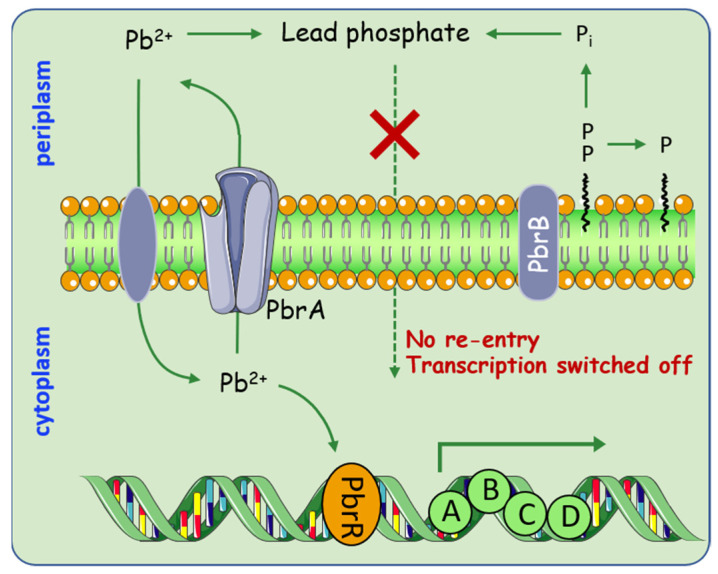CD Biosynsis is a leading research organization in the field of enzyme design and evolution, with long and in-depth experience in directed enzyme evolution. Our professional research team provides highly-quality services to help researchers improve enzyme-substrate reactivity and provide valuable insights for the rational design of enzymes with better properties or new functions.
Overview
Enzymes are important biocatalysts whose catalytic activity is usually regulated by coenzymes or cofactors covalently bound to them. Altering the mechanism of covalent binding regulation of enzymes by cofactors is an important area of research in the field of enzyme engineering, because changes in the covalent linkage of an enzyme to a cofactor may lead to changes in the catalytic efficiency, substrate specificity, or other properties of the enzyme.
 Fig 1. Overview of processes involved in heavy metal metabolism medicated by pbr operon. (Xu A, et al., 2021)
Fig 1. Overview of processes involved in heavy metal metabolism medicated by pbr operon. (Xu A, et al., 2021)
Our Services
Based on our advantages in the field of computer-aided design and AI applications, the EnzymoGenius™ platform aims to provide enzyme designing services to altering the catalytic mechanism of covalent enzyme-cofactor linkages, which mainly covers the following service strategies.
- Computational Approaches
Some computational methods, such as molecular dynamics simulations or quantum mechanical calculations, can help us get a deeper understanding of the way enzymes covalently bind and interact with cofactors, providing theoretical support for altering the catalytic mechanism of enzymes.
- Site-Directed Mutagenesis
With the help of targeted mutagenesis, we can target amino acid sites covalently linked to cofactors and replace them with different amino acids, in this way directly altering the way the enzyme binds to the cofactor and never changing the catalytic mechanism.
- Functional Assays
We will detect the catalytic activity of site-directed mutant enzymes and study the catalytic mechanism in depth, and make an overall assessment of the site-directed mutation, which includes determining the catalytic ability of the enzyme, the specificity of binding to the substrate, the mode of binding to cofactors, and the overall stability of the enzyme.
Our Advantages
- Professional Research Team
We have a professional research team of scientists with decades of experience in the field of enzyme design and evolution, focusing on the directed evolution and rational design of enzymes, and are committed to providing the greatest impetus for enzyme biology research.
- High-quality Services
We have a team of highly skilled and experienced scientists with in-depth knowledge of enzyme design evolution, who can provide you with professional consulting services before the project and reliable support services after the sale.
CD Biosynsis strives to altering the catalytic mechanism of covalent enzyme-cofactor linkages for various applications, whether academic research, industrial applications, or biotechnological development, our services are tailored to meet your specific requirements. Our team is ready to assist you and provide the insights you need to achieve your goals. If you are interested in our services, please don't hesitate to contact us.
Reference
- Xu, A.; et al. Pollutant Degrading Enzyme: Catalytic Mechanisms and Their Expanded Applications. Molecules. 2021, 26(16):4751.

































 Fig 1. Overview of processes involved in heavy metal metabolism medicated by pbr operon. (Xu A, et al., 2021)
Fig 1. Overview of processes involved in heavy metal metabolism medicated by pbr operon. (Xu A, et al., 2021)